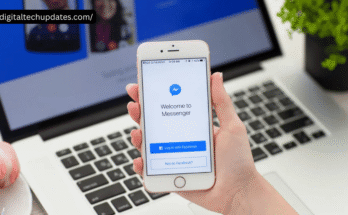Negotiation is an essential skill for digital marketers. Whether you’re securing client contracts, collaborating with influencers, or buying ad space, your ability to negotiate effectively can directly impact your ROI, client satisfaction, and business growth.
Despite the importance, many digital marketers underestimate negotiation — often leaving money, opportunities, and influence on the table. This guide provides the best negotiation advice tailored for digital marketers, covering strategies, tips, real-world scenarios, and actionable techniques to help you achieve better outcomes.
Why Negotiation Skills Matter in Digital Marketing
Digital marketing is more than just campaigns and analytics. It involves:
Client Management: Convincing clients to adopt your strategies and pricing.
Influencer Partnerships: Securing favorable terms with social media influencers.
Vendor Deals: Negotiating ad placements, software tools, or freelance work.
Budget Allocation: Ensuring your marketing campaigns get sufficient resources.
Good negotiation skills help you:
Maximize Profitability: Get better rates from clients, vendors, or platforms.
Build Stronger Relationships: Negotiate win-win deals that foster long-term collaboration.
Save Time: Reach agreements faster without prolonged back-and-forth.
Reduce Stress: Confidence in negotiation lowers anxiety in high-stakes discussions.
Improve ROI: Smart negotiations can lead to higher campaign results at lower costs.
Key Principles of Successful Negotiation for Digital Marketers
To negotiate effectively, digital marketers should focus on strategy, preparation, and psychology. Here are the core principles:
1. Understand the Value You Bring
Know your skills, past successes, and unique expertise.
Quantify results: CPC reduction, conversion rate increase, or ROI boost.
Position yourself as a solution provider, not just a service provider.
2. Research Before Negotiating
Understand your client, partner, or vendor’s pain points, priorities, and constraints.
Gather market data on industry rates, competitor pricing, and campaign benchmarks.
Preparation makes you more confident and reduces the risk of accepting unfavorable terms.
3. Define Your Objectives
Set clear goals: minimum acceptable rates, target ROI, or campaign scope.
Determine your walk-away point before negotiations begin.
4. Aim for a Win-Win Outcome
Successful negotiation isn’t about “winning” but creating mutual value.
Offer flexible solutions, bundled packages, or performance-based pricing.
Build trust by showing you understand the other party’s needs.
5. Practice Active Listening
Let the other party explain their expectations and constraints.
Use clarifying questions: “Can you help me understand your budget priorities?”
Listening shows respect and helps uncover hidden opportunities.
Negotiation Tactics for Digital Marketers
1. Anchoring
Set the first number to influence the negotiation range.
Example: Quote your services at a slightly higher rate than your target to leave room for concessions.
2. Value-Based Pricing
Focus on outcomes, not hours.
Highlight ROI, lead generation, or sales improvement instead of hourly rates.
3. Bundling Services
Offer multiple services together at a discounted package rate.
Example: SEO + Social Media Management + Content Marketing as a bundle.
4. Leverage Data and Case Studies
Present past campaigns showing metrics like CTR, conversions, or engagement.
Data-driven arguments are harder to dispute and justify pricing.
5. Be Ready to Walk Away
If terms aren’t favorable, politely decline.
Maintaining confidence and self-worth often leads the other party to reconsider.
6. Negotiate Deadlines & Deliverables
Flexibility isn’t always monetary. Negotiate scope, timelines, or reporting requirements.
Example: Offer a longer campaign period in exchange for higher pricing.
7. Use Scarcity and Urgency
Highlight limited availability: “I can take only 3 new clients this month.”
Creates urgency without pressuring the client aggressively.
8. Offer Performance-Based Incentives
Show confidence in your work with bonus or milestone payments based on results.
Reduces client hesitation while allowing you to earn more if the campaign succeeds.
Common Negotiation Scenarios for Digital Marketers
1. Client Contracts
Discuss retainer fees, project scope, and performance metrics.
Use data-backed proposals to justify higher rates.
Offer different tiers of service to allow clients flexibility.
2. Influencer Collaborations
Negotiate fees for sponsored posts, stories, or videos.
Bundle campaigns or offer cross-promotions for better deals.
Include clear deliverables and timelines to prevent misunderstandings.
3. Vendor & Tool Pricing
Request discounts for annual subscriptions or bulk purchases.
Compare competitors and use them as leverage.
Ask for trial periods or added features at no extra cost.
4. Paid Ad Space
Negotiate ad placements with platforms, publishers, or media owners.
Seek package deals for multiple ad slots or higher visibility placements.
Use past campaign results as justification for better pricing.
Psychology Behind Negotiation
Understanding human behavior is crucial in digital marketing negotiations:
Reciprocity: If you offer a small concession, the other party is likely to reciprocate.
Authority: Demonstrate expertise with certifications, awards, or case studies.
Social Proof: Highlight successful campaigns or well-known clients you’ve worked with.
Scarcity: Limited availability or exclusive offers can encourage faster decisions.
Framing: Present options in a way that emphasizes benefits over costs.
Mistakes Digital Marketers Should Avoid
Underpricing Services – Can devalue your expertise and lead to burnout.
Not Researching Clients – Lack of information weakens your position.
Being Too Aggressive – Can damage long-term relationships.
Failing to Document Agreements – Leads to scope creep or misunderstandings.
Ignoring Negotiation Beyond Money – Deadlines, deliverables, and support are negotiable too.
Tips to Improve Negotiation Skills
Roleplay Scenarios: Practice with colleagues or mentors.
Take a Negotiation Course: Platforms like Coursera or LinkedIn Learning offer professional training.
Track Your Negotiations: Keep notes on what worked and what didn’t.
Learn From Others: Study successful digital marketers and their negotiation strategies.
Stay Calm & Confident: Negotiation is both logic and psychology — confidence matters.
Digital Marketing Negotiation Checklist
Before any negotiation, ensure you:
Know your minimum and target rates
Have a portfolio or case studies ready
Understand the client or partner’s needs
Define scope, timelines, and deliverables
Prepare win-win proposals
Have backup options in case the negotiation fails
Conclusion
Negotiation is a critical skill for digital marketers, impacting revenue, relationships, and campaign success. By understanding your value, preparing thoroughly, leveraging data, and applying psychology, you can achieve favorable outcomes for both yourself and your clients.
Whether you’re negotiating client contracts, influencer deals, or ad spend, these negotiation strategies will help you maximize ROI, build credibility, and grow your digital marketing career.
Master the art of negotiation — because in digital marketing, your ability to communicate value effectively can make all the difference.




